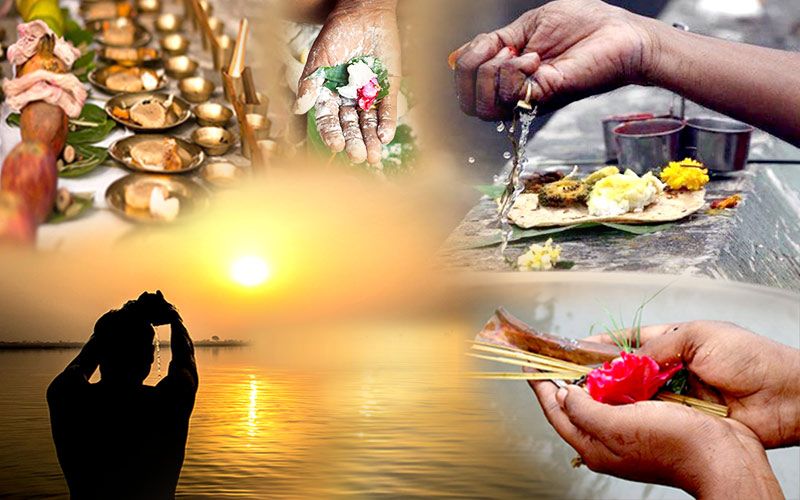Pitru Dosha Pooja is a significant ritual in Hindu culture aimed at appeasing the departed ancestors, ensuring their peace and blessings. This pooja is essential for individuals who believe in the profound impact of ancestral energies on their lives. But a common question arises: who can perform Pitru Dosha Pooja? Additionally, many wonder if women are eligible to conduct this sacred ritual. In this comprehensive guide, we will explore these questions in detail, providing clarity on the participants, procedures, and cultural beliefs surrounding this important ceremony.

Understanding Pitru Dosha
Pitru Dosha, also known as ancestral curse, is believed to occur when the souls of ancestors are displeased due to various reasons such as improper shraddha rituals, untimely deaths, or unfulfilled desires. This dosha is said to cause various issues in the lives of descendants, including financial instability, health problems, and obstacles in career and relationships. Performing Pitru Dosha Pooja is seen as a way to alleviate these problems by seeking the blessings of the ancestors and ensuring their contentment.
Who Can Perform Pitru Dosha Pooja?
Eligibility and Requirements
Traditionally, the responsibility of performing Pitru Dosha Pooja falls on the male descendants of the family, typically the eldest son. This is rooted in the belief that sons carry the duty of performing rituals for the ancestors. However, in the absence of a son, other male relatives like brothers or nephews can take up this responsibility.
Can Women Perform Pitru Dosha Pooja?
The question of whether women can perform Pitru Dosha Pooja is often debated. Traditionally, Hindu customs have restricted women from performing certain rituals. However, contemporary practices and interpretations are evolving. In many families, if there is no male member available, women, especially widows or daughters, are stepping in to perform these rituals. It is increasingly recognized that the intent and devotion behind the ritual are more important than strict adherence to gender roles.
Role of Priests
Priests or purohits play a crucial role in conducting Pitru Dosha Pooja. They are well-versed in the Vedic rituals and ensure that the pooja is performed correctly. Families often seek the guidance of experienced priests to lead the ceremony, ensuring that every step is followed accurately and reverently.
Steps Involved in Pitru Dosha Pooja
Preparation
- Choosing an Auspicious Date: The pooja is typically performed on Amavasya (new moon day) or during the Mahalaya Paksha (fortnight dedicated to ancestors).
- Gathering Materials: Essential items include black sesame seeds, rice, milk, flowers, incense, and specific pooja items prescribed by the priest.
- Fasting and Purity: Participants often fast and maintain physical and mental purity on the day of the pooja.
The Ritual
- Sankalpa: The priest initiates the ritual by making a solemn vow or sankalpa, stating the purpose of the pooja and invoking the ancestors.
- Tarpana: Offering water mixed with black sesame seeds and rice to the ancestors while chanting mantras.
- Pind Daan: Offering rice balls (pindas) to the ancestors, symbolizing their spiritual nourishment.
- Havan: Performing a fire ritual to purify the surroundings and invoke divine blessings.
- Shraddha: Conducting the final rites, including feeding Brahmins or the needy, believed to transfer merits to the ancestors.
Post-Pooja Rituals
After the pooja, participants often donate to charity, feed cows, and provide food to the poor, symbolizing the completion of the ritual and the sharing of blessings.
Significance of Pitru Dosha Pooja
Spiritual Benefits
- Ancestor’s Peace: Ensures that the departed souls attain peace and satisfaction, which in turn removes any ancestral curses.
- Blessings and Prosperity: Seeking blessings from ancestors is believed to bring prosperity, success, and overall well-being to the family.
Personal Benefits
- Alleviation of Dosha Effects: Mitigates the negative effects of Pitru Dosha, such as financial troubles, health issues, and familial discord.
- Mental Peace: Provides a sense of fulfillment and peace to the performer, knowing they have honored their ancestors.
Community and Cultural Impact
- Preservation of Traditions: Helps in maintaining and preserving ancient traditions and customs within the community.
- Social Harmony: Encourages unity and cooperation among family members and the community, fostering social harmony.
Common Myths and Misconceptions
Myth: Only Men Can Perform the Ritual
While traditionally men are preferred, women can and do perform the ritual, especially in the absence of male members. The key is devotion and adherence to ritual procedures.
Myth: Pitru Dosha Pooja Must Be Performed Yearly
While it is beneficial to perform the pooja regularly, it is not mandatory every year. Significant life events or the guidance of an astrologer often dictate the necessity.
Myth: Pitru Dosha Pooja Can Solve All Problems
Pitru Dosha Pooja can alleviate specific ancestral-related issues, but it is not a cure-all. It should be complemented with good karma and positive actions.
Frequently Asked Questions about Narayana Bali Pooja
Traditionally, male descendants such as sons or nephews perform the pooja. However, women can also perform it in the absence of male members.
Yes, women can perform Pitru Dosha Pooja, especially if no male members are available. The intent and devotion are crucial.
Essential materials include black sesame seeds, rice, milk, flowers, incense, and specific pooja items prescribed by the priest.
The pooja is best performed on Amavasya (new moon day) or during the Mahalaya Paksha (fortnight dedicated to ancestors).
Benefits include the peace of departed ancestors, removal of ancestral curses, prosperity, and overall well-being of the family.
While it is possible, it is advisable to have a knowledgeable priest guide the ritual to ensure it is performed correctly.
Conclusion
Understanding who can perform Pitru Dosha Pooja is essential for those seeking to honor their ancestors and mitigate the effects of Pitru Dosha. Whether conducted by men or women, the focus should remain on devotion and adherence to ritual practices. Narayana Nagbali in Gokarna offers expert guidance and services for performing these rituals with precision and reverence.
If you’re looking to perform Pitru Dosha Pooja and need expert assistance, contact Narayana Nagbali in Gokarna. Our experienced priests are here to guide you through every step of this sacred ritual, ensuring peace and blessings for your family. Visit us today and honor your ancestors with the respect and devotion they deserve.

